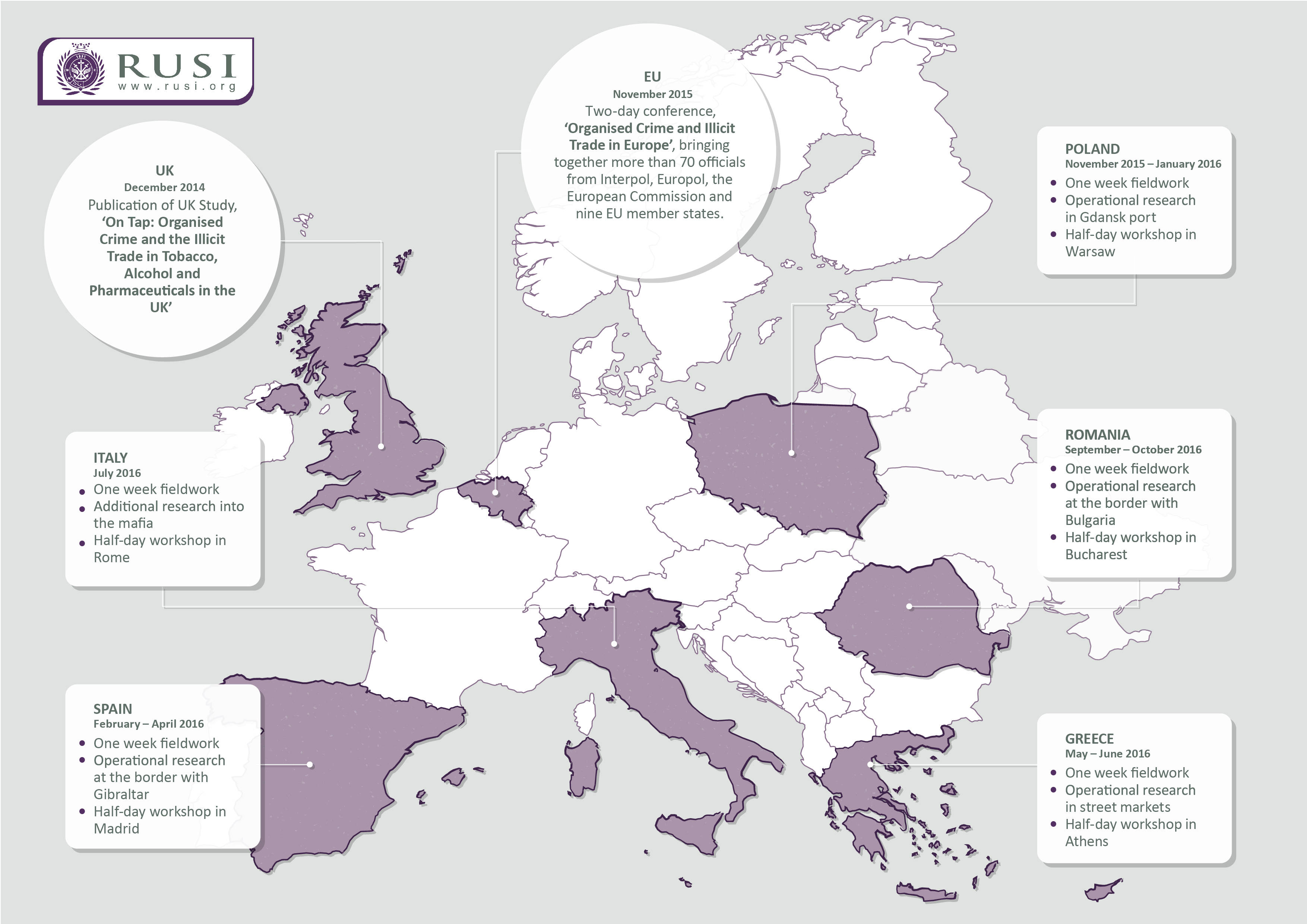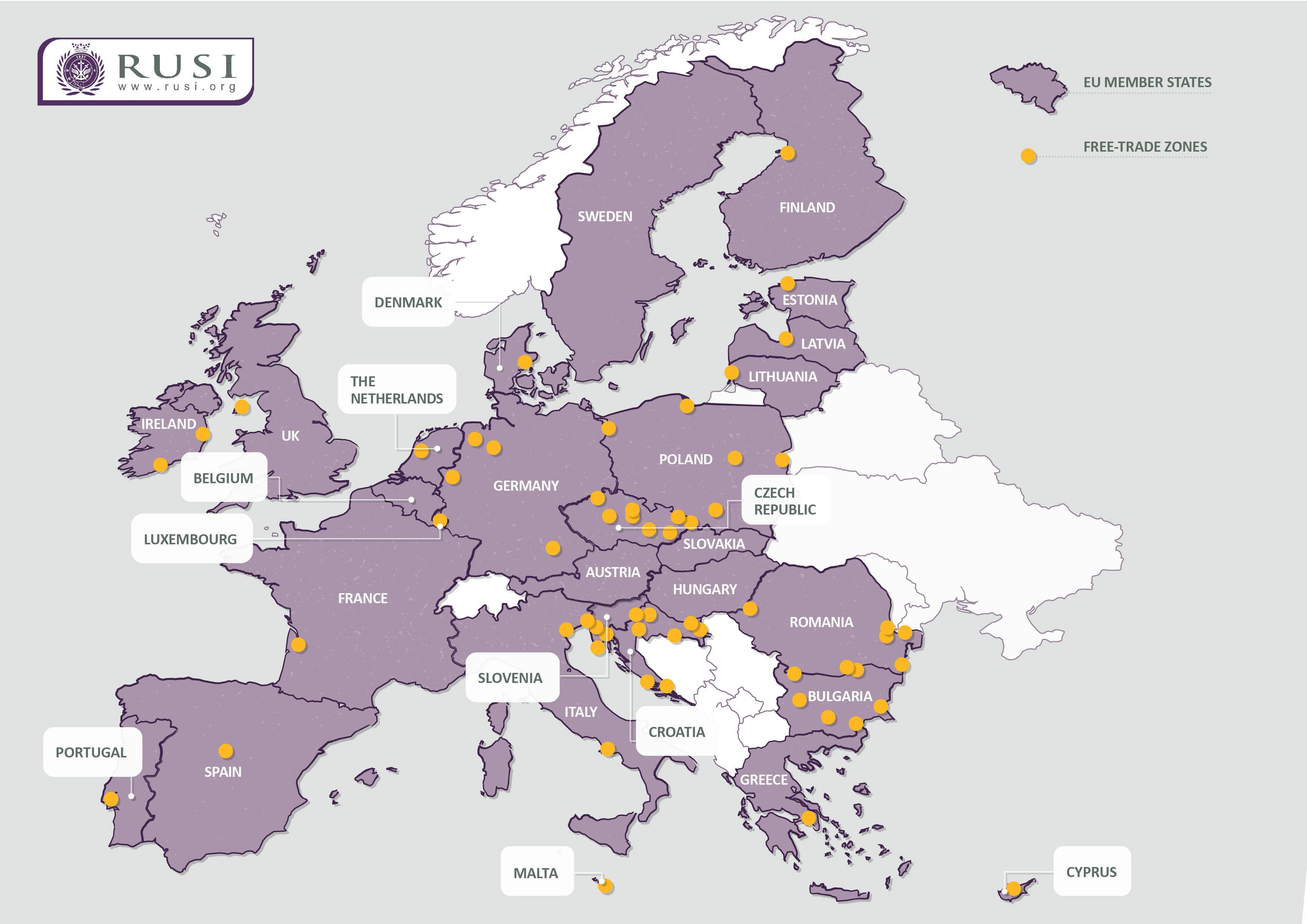On Tap Europe: Organised Crime and Illicit Trade in Tobacco, Alcohol and Pharmaceuticals
This is the final report in a series of papers on the role of organised crime groups in the illicit trade of tobacco, alcohol and pharmaceuticals across Europe.
An official quietly stamping paperwork; a lorry passing across internal EU borders; an innocuous parcel in a postman’s van: this is what organised crime looks like in Europe. It is, of course, only one side of a multifaceted threat, but while the more violent elements of organised crime demand our attention, illicit trade is quietly capitalising: infiltrating our economies, bringing dangerous goods into our communities and diverting billions of euros away from EU governments.
The illicit trade is the epitome of modern organised crime in its reflection of legitimate business: groups are quick to recognise and respond to opportunities; they diversify their activities to minimise risk and maximise investment; they capitalise on new technologies; they build a network of contacts with varied expertise; and they cooperate with international partners.
Across Europe, this is not the organised crime threat that law enforcement was designed to tackle. Law enforcement is used to fighting strict hierarchical groups, but organised crime groups (OCGs) no longer have this structure; they are becoming ‘loose, undefined and flexible networks’.
But while law enforcement needs to evolve, there are also new allies to support them in their task. International bodies, industry regulators and affected sectors all have a role to play in reducing organised crime; as technology, infrastructure and regulation have advanced to facilitate legitimate business and cross-border trade, OCGs have found ways to similarly utilise these mechanisms, making them unintentional enablers of the illicit market. Efficient global commerce is an integral part of modern life, but the balance has not yet been found between facilitating trade and ensuring security.
The approach to prosecution and sanction across the EU also requires reform. At present, member states are ineffective in deterring both new entrants to illicit trade and repeat offenders. Fundamentally, the rewards are too high and the risks are too low. Until this balance can be altered illicit trade will remain a key aspect of organised crime activity and continue to be a threat across the EU.
This report is the culmination of an eighteen-month study conducted across five EU member states: Greece, Italy, Poland, Romania and Spain. The research team worked closely with law enforcement agencies, gaining some operational experience of both the threat and the methods undertaken to tackle it. In addition to desk research and fieldwork interviews with experts from the public and private sector, five workshops were held in the countries selected as case studies (see map below).
The country-level research has also been supplemented by further work to examine assessments of, and responses to, illicit trade at the European level. This included a two-day conference in Brussels, examining the major themes raised by the research with representatives from law enforcement agencies, research organisations and European institutions, as well as the tobacco, alcohol and pharmaceutical industries.
The report identifies key enablers of illicit trade, including:
- Corruption at European borders. Corrupt officials can undermine otherwise strict controls, and enable the EU’s outer defences to be easily breached by organised crime groups importing counterfeit or unlicensed goods.
- Free-trade zones are exploited by organised crime groups around the world, taking advantage of their limited oversight to re-document shipments and conceal their true origin, or even to conduct parts of the manufacturing process (see map below for locations of these zones).
- Postal and courier services are used by organised crime groups to transport illicit products, sending lower volumes of goods with greater frequency. Small courier companies represent a growing risk, with small vans regularly transporting hundreds of parcels across borders after only collecting minimal details from senders.
- The internet and social media enable the sale of illicit goods across Europe, in particular pharmaceutical products. While many consumers intentionally purchase goods in this manner, others are deceived into believing they are making a genuine purchase, with OCGs creating increasingly professional websites.
- Social acceptability is an important enabling factor for illicit trade across the EU, creating an environment in which demand for illicit products is tolerated.
ABOUT THE ON TAP EUROPE SERIES
According to Europol, commodity counterfeiting and illicit trade in substandard goods are major emerging criminal activities in the EU. The low risks and high profitability associated with illicit trade increasingly attract organised crime groups and the number of counterfeit products seized by law enforcement agencies across Europe continues to grow. The eighteen-month On Tap Europe study provides a comparative analysis of the role of organised crime in the illicit trade of tobacco, alcohol and pharmaceuticals across the EU, gathering evidence from a number of member states.
The six-part series explores the scale, methods and routes of these organised criminal networks, and identifies best practice in policy and law enforcement responses. This is the final report, which examines how these issues affect Europe as a whole; it features a series of recommendations for the European Commission, its agencies and EU member states.



